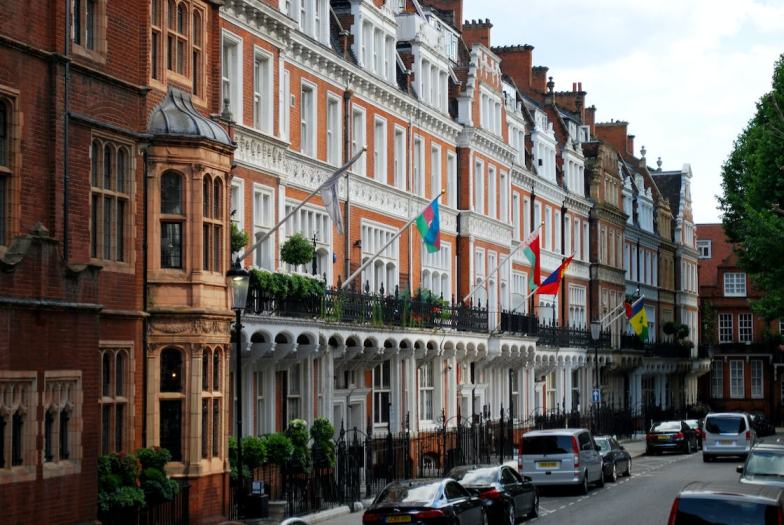Europe has long been a sought-after destination for foreign entrepreneurs and self-employed individuals looking to expand their operations and reach new markets. However, navigating the complex visa requirements for entry into the region for business purposes can be daunting. Many individuals are deterred from pursuing their European aspirations due to the perceived difficulty of obtaining the necessary visa to conduct business in Europe.
This is where a Business Visa to Europe comes into play. Officially called a Schengen Business Visa, this Schengen Visa offers a range of benefits that can make the Business Visa application process well worth the effort.
This article will shed light on the advantages of a Schengen Business Visa, including increased market access, networking opportunities, and the potential for long-term residency in a Schengen member state. By unlocking these benefits, individuals and businesses can position themselves for success and thrive in the Schengen Area and the broader European market.
How can I benefit from a Schengen Business Visa?
Obtaining a Business Visa for the Schengen Area and European Union can benefit many business owners and entrepreneurs looking to expand their reach and explore new opportunities. Here are several key advantages that make obtaining a Schengen Business Visa worthwhile.
Increased market access: With a Schengen Business Visa, entrepreneurs and business owners can travel freely across the Schengen Area, which includes 26 European countries. This provides access to a large market with diverse consumer demographics from each Schengen state, allowing businesses and corporations to reach new customers and expand their market share.


Networking opportunities: The Business Visa issued by Schengen government authorities is intended for those not looking for employment but to travel to Schengen countries for business purposes.
Eligible business activities include attending any trade fair, accepting a partner company’s invitation, and fulfilling contractual obligations.
Business Visa holders can also attend meetings, conferences, and networking events where entrepreneurs and business owners can meet potential partners and investors while gaining valuable industry insights.
Potential for long-term residency: For international entrepreneurs looking to establish a permanent presence in Europe, a Schengen Business Visa can be a stepping stone towards obtaining long-term residency in not just one Schengen country but two or more countries in the Schengen Area. By successfully operating their business and fulfilling the mandatory visa requirements, visa holders may be eligible for residency permits and citizenship in their chosen Schengen country.
Flexibility: A Schengen Business Visa offers greater flexibility than traditional work visas, allowing entrepreneurs and business owners to manage their businesses while traveling through Schengen territory. This means they can oversee their operations, meet with clients or a partner company, and carry out any other activities concerning their business agenda while still enjoying the benefits of traveling to different Schengen countries.
In summary, a Schengen Business Visa can provide businesses with greater market access, networking opportunities, and potential for long-term residency, making it a valuable Schengen Visa for anyone with business aspirations in Europe.
What are the required documents to apply for a Schengen Visa for business purposes?
Below is a list of the documents required for a Business Schengen Visa application:
- A fully completed Schengen Visa application form.
- Two passport-size photos taken within the last three months.
- A valid passport with a minimum of three months of validity beyond the date of planned departure from the Schengen Area
- A Round-trip travel itinerary, including dates and flights specifying the port of entry and exit from the Schengen zone
- Proof of accommodation, including hotel reservations or a rental agreement, that shows where you’ll be staying for the entire time spent in the Schengen Area
- Proof of paying the correct Schengen Visa fee
Additional required documents
The additional documents you may be required to submit when you apply for a Schengen Visa will differ based on your passport and country of citizenship. Some of the potential documents include:
- Travel insurance which covers any designated country within Schengen territory, and a minimum coverage of €30,000 (about $33,000) for any illness or medical emergency
- Proof of financial means showing you have enough funds to support yourself during your business trip to Europe. Acceptable forms of proof can include any of the following documents:
- A bank account statement from within the last three months that shows you have enough money in your account for the business trip
- A sponsorship letter from an EU citizen or resident confirming they will financially support your trip to not only one country but all EU member states in the travel itinerary. Invitation letters must include a bank statement.
- A combination of a letter of sponsorship and your bank account statement
- A cover letter clarifying the purpose of the trip to the Schengen country
- A short profile of the applicant’s workplace
- An employer letter describing the sole purpose of the trip as well as the itinerary of the days spent within the Schengen zone
- An invitation letter signed by the partner company in the Schengen zone (must be mailed to the embassy of the country)
- Proof of financial means must be stated either in the partner company’s invitation or the employer’s letter that one or both parties will cover the applicant’s travel expenses during their stay in the Schengen Area
- Any document proving there were previous trade relations or other relevant events matching trade discussions between the two companies
- For employees:
- Employment contract
- A bank account statement from within the last six months
- Leave permission granted from the employer
- Income Tax Return form or proof of income tax deducted at the source of salary
- For the self-employed:
- A copy of your business license
- Company bank statement from within the last six months
- Self-assessment tax return
Where to submit a Business Visa application
All Schengen Business Visa applications must be submitted to the relevant Consulate or Embassy of the country through which you’ll enter or conduct the majority of your business.
- If your plan is to visit just one country, you must apply at the corresponding Consulate of the country you will be entering.
- If your plan is to visit more than one country, where you need to apply will depend on the number of days you’ll spend in each country. This must include all days spent, whether single-entry or multiple-entry.
- When spending an equal number of days in each country, you must apply at the Embassy/Consulate of the country you’ll first arrive.

Schengen Business Visa application process
There are a few steps to follow when you apply for a Business Visa:
- Check which Consular Office you need to submit a visa application form to. To apply for a Business Visa in the right Embassy/Consulate, you must verify which country should issue your Business Visa (if the same business trip will cover more than one Schengen state).
- Book a visa appointment at the relevant Consular Office
- Attend the visa interview and ensure to bring all the documents required for the Schengen Visa application
- Wait for a decision
When to apply
The earliest date you can submit an application for a Schengen Business Visa is three months before your scheduled trip and no later than 15 working days before your intended departure for your destination country in Europe. The ideal timeframe to apply for a business visa is around three weeks before your departure.
On average, a Business Visa takes ten days to be approved or rejected. Specific details, such as a criminal record, may delay the processing time. The type of visa also affects the processing time. A digital nomad visa, for example, could require additional documents and due diligence.
How long is a Schengen Business Visa valid?


A Schengen Visa for Business is generally valid for stays of no more than 90 out of 180 days.
If you will be traveling frequently and through multiple Schengen member states, it would be advisable to tick the “multiple entry” box in the visa application form.
Frequently Asked Questions about a Business Visa to Europe
Can Schengen Visas be used for business?
To conduct business in the Schengen Area, non-EU citizens must submit a Business Schengen Visa application. Eligible activities include attending a trade fair, accepting a partner company’s invitation, attending conferences, and other networking events. To seek employment and carry out labor-based activities, non-EU citizens must apply for a relevant work visa.
Are the Schengen Tourist Visa and Business Visa the same?
The Schengen Tourist Visa and Business Visa serve distinct purposes. The Tourist Visa is a short-term Schengen Visa designed for leisure travel to the Schengen Area, while the Business Visa enables non-EU citizens to visit the region specifically for business purposes.
What is the five-year Schengen Visa for business?
The MEV (Multiple-Entry Visa) is a Schengen Visa that can be obtained for travel or business in the Schengen Area. A Schengen five-year visa allows multiple entries in the Schengen Area over five years.
Can a Schengen Business Visa be used for tourism?
Non-EU citizens holding a Business Visa to Europe are free to engage in any tourism activities of their choice throughout the validity period of their visa.
Can you obtain EU residency with a Business Schengen Visa?
A Business Schengen Visa is a short-stay Schengen Visa for conducting business in countries within the Schengen Area on a short-term basis. This visa typically allows stays of 90 days out of 180 days. To obtain residency in the EU, non-EU citizens must apply for an investment visa program, like the Malta Permanent Residence Program (MPRP), that provides a long-term or permanent residence permit in exchange for economic investment.


